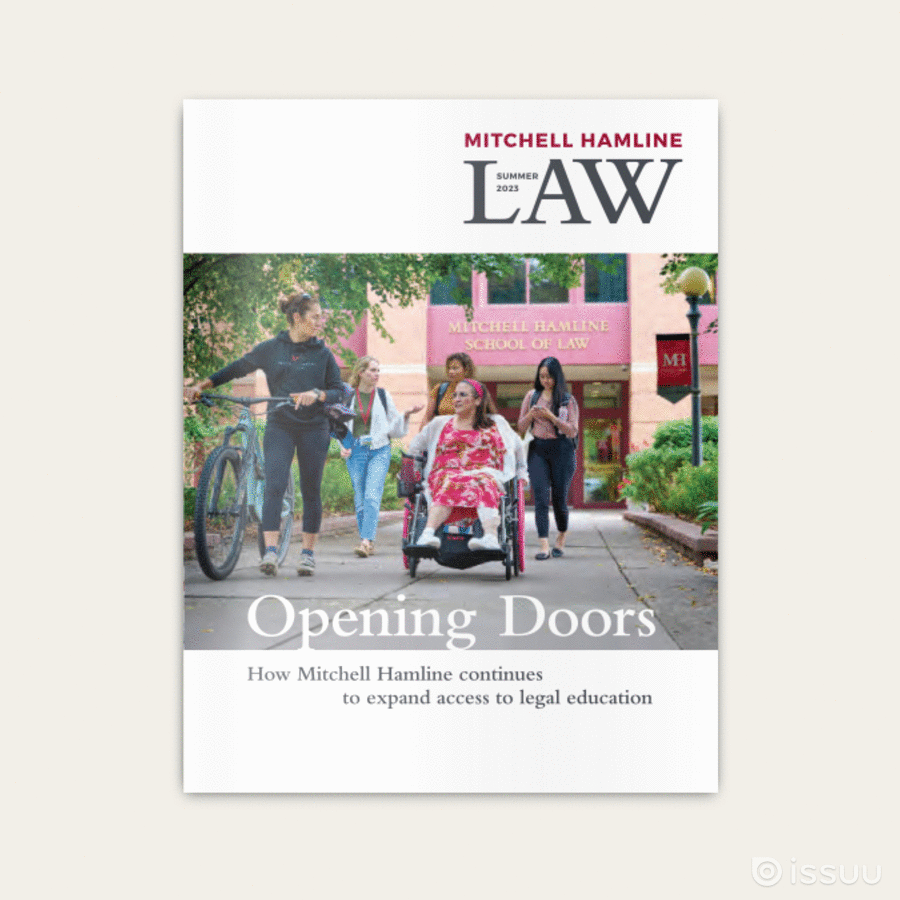
Will Stute ’97
In October, the National Law Journal named Will Stute ’97 Winning Litigator of the Year out of 12 finalists. The publication cited two blockbuster trial wins for the NCAA that Stute secured. Another publication, American Lawyer, has also named Stute a finalist for National Litigator of the Year.
The following is an article we wrote for this past summer’s edition of our annual magazine, Mitchell Hamline Law.
All-Star Defense
Will Stute ’97 focused on humanizing a billion-dollar institution—the NCAA—to help win a landmark verdict against the widow of a former college football player who sought to hold the organization responsible for her husband’s death.
The case was essentially a bellwether, Stute said, as the first to go to a jury involving concussions and the degenerative brain disease CTE (chronic traumatic encephalopathy) in college football players. Stute leads the sports practice at Orrick, an international law firm headquartered in San Francisco.
Stute discovered his love of litigation while doing mock arguments and negotiations as a William Mitchell College of Law student. The school’s flexible schedule enabled Stute—who was raised by a single mother and put himself through college and law school—to work while getting a “great legal education that I would put up to anyone’s.”
Stute guided the Orrick team that defended the NCAA in a wrongful death lawsuit brought by the family of former University of Southern California football player Matthew Gee. Gee played from 1988 to 1992. He made camp for the Los Angeles Raiders the following year but was cut and never played in the NFL. He later started his own insurance agency.
After Gee died in 2018 at age 49, his family sought $55 million in damages.
After a three-week trial last November, a Los Angeles jury deliberated for just a day before ruling in the NCAA’s favor. In February, a jury in Indiana rendered a complete defense in a similar lawsuit from the widow of a former college quarterback.
With hundreds of such cases still pending, testimony from NCAA officials and their concern for student-athlete health and safety helped humanize the high-profile organization.
“That’s a story that’s not front and center in the media and was really important to tell the jury,” said Stute, who is also a former Mitchell Hamline trustee.
One major question litigated in the NCAA case was whether Gee’s symptoms were caused by CTE; Stute argued they weren’t. He also told jurors not to hold the NCAA responsible for Gee’s death from sudden cardiac death because it was caused by several factors, including severe hypertension.
Stute also represents large companies in the technology, life sciences, financial services, and defense contracting industries.
His work in sports doesn’t only happen in the office. At home, he helps advise one of his sons, who plays Division I college basketball.
“I’m sitting today at my place in Miami having achieved probably more success than I could ever have imagined,” said Stute.
“That’s a message I would take to all of the students–the sky’s the limit coming from Mitchell Hamline.”
This article was written by Todd Nelson, a freelance writer in the Twin Cities.

